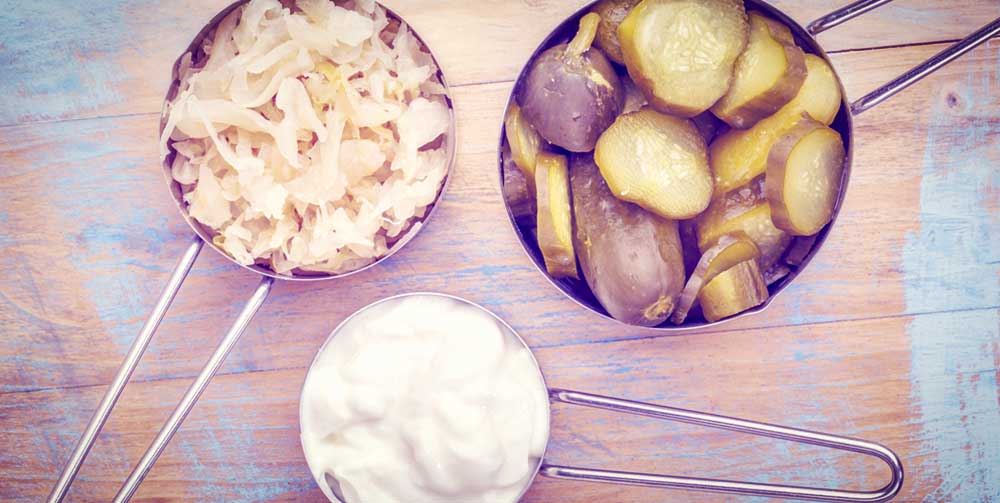Debilitating brain disorders are on the rise, from children diagnosed with autism and ADHD to adults developing dementia at younger ages than ever before. But a medical revolution is underway that can solve this problem: Astonishing new research is revealing that the health of your brain is, to an extraordinary degree, dictated by the state of your microbiome – the vast population of organisms that live in your body and outnumber your own cells ten to one. What’s taking place in your intestines today is determining your risk for any number of brain-related conditions.
 In his book Brain Maker, Dr. Perlmutter explains the potent interplay between intestinal microbes and the brain, describing how the microbiome develops from birth and evolves based on lifestyle choices, how it can become “sick,” and how nurturing gut health through a few easy strategies can alter your brain’s destiny for the better. With simple dietary recommendations and a highly practical program of six steps to improving gut ecology, Brain Maker opens the door to unprecedented brain health potential.
In his book Brain Maker, Dr. Perlmutter explains the potent interplay between intestinal microbes and the brain, describing how the microbiome develops from birth and evolves based on lifestyle choices, how it can become “sick,” and how nurturing gut health through a few easy strategies can alter your brain’s destiny for the better. With simple dietary recommendations and a highly practical program of six steps to improving gut ecology, Brain Maker opens the door to unprecedented brain health potential.
Dr David Perlmutter lists probiotic and prebiotic foods as "Brain Maker Foods". Here is his lists of the best sources of pre and probiotic foods, essential for a healthy digestive system.
PROBIOTIC FOODS
Active-Culture Yogurt
An explosion of yogurt brands has taken over the dairy section lately, but you have to be careful about which brands to buy; many of them—both Greek and regular—are loaded with added sugar, artificial sweeteners, and artificial flavors. Read your labels. For people sensitive to dairy, coconut yogurt is an excellent dairy-free way to work plenty of enzymes and probiotics into your diet.
Kefir
The name Kefir is derived from the Turkish word keyif which means “feeling good” after consumption. This fermented dairy product is very similar to yogurt. It is a unique combination of kefir “grains” (a combination of yeast and bacteria) and goat’s milk that’s high in lactobacilli and bifidobacteria. It’s also rich in antioxidants. For those who are sensitive to dairy or lactose intolerant, coconut kefir, a non-dairy version, is also delicious and equally beneficial.
Kombucha Tea
This is a form of fermented black or green tea that has been used for centuries. Fizzy and often served chilled, it’s also believed to help increase energy, and may even help you lose weight.
Tempeh
Many people, especially vegetarians, eat tempeh as a substitute for meat. Tempeh is fermented soybeans and a complete protein, with all of the amino acids. Also a great source of vitamin B12, tempeh can be cooked or crumbled over salads.
*Note: Not to be confused with unfermented soy. The fermentation process reduces the levels of phytic acid in tempeh, making it a much better option. Overall, I am not a huge fan of any soy derived product. But for vegetarians, this is an option.
Kimchi
A traditional Korean dish, this is a mixture of fermented vegetables and seasonings. Common ingredients include cabbage, brine, radish and spices such as ginger and chili pepper. In addition to providing beneficial bacteria, kimchi is also a great source of calcium, iron, beta-carotene, and vitamins A, C, B1, and B2. For some it may be a little too spicy, but it’s one of the best probiotic foods you can add to your diet if you can handle the heat.
Sauerkraut
A german word, Sauerkraut translates to “sour cabbage.” Not only does this fermented cabbage fuel healthy gut bacteria but it contains choline, a chemical needed for the proper transmission of nerve impulses in the brain and throughout the central nervous system.
Pickles
No wonder many pregnant women crave pickles, among the most basic and beloved natural probiotic. For many, pickles can be your gateway food to other, more exotic fermented foods.
Pickled fruits and vegetables
Pickling fruits and veggies, such as carrot sticks, transforms the usual into the extraordinary. Whether you do this yourself or buy pickled produce, keep in mind that the probiotic benefits are only present in unpasteurized foods pickled in brine, not vinegar.
Cultured condiments
Believe it or not, you can create lacto-fermented mayonnaise, mustard, horseradish, hot sauce, relish, salsa, guacamole, salad dressing, and fruit chutney. Sour cream, while technically a fermented dairy product, tends to lose its probiotic power during processing. Some manufacturers, however, add live cultures at the end of the process; look for these brands.
Fermented meat, fish, and eggs
Consumed in may traditional fares, you can find some mouth-watering recipes from corned beef to pickled sardines and fermented hard-boiled eggs in the recipes section of Brain Maker.
Prebiotic Foods
Acacia gum (or gum Arabic)
To reap the benefits of Acacia gum, you can buy acacia powder and mix it with water. Just 1 tablespoon will give you 6 grams of insoluble prebiotic fiber—the kind of fiber the gut bugs love for their own nourishment.
Raw chicory root
I use chicory root when cooking, as it is an excellent source of antioxidants, as well as a terrific system cleanser. Most of my chicory consumption comes via kimchi, as it’s an ingredient I use when making kimchi at home (and you can find the recipe in Brain Maker).
Raw Jerusalem artichoke
Jerusalem artichoke, which you might know better as sunroot, is actually a species of sunflower loaded with nutrients and health benefits. Specifically, besides being a great prebiotic, Jerusalem artichoke is rich in potassium and iron. During the week, I enjoy Jerusalem artichoke in salads.
Raw dandelion greens
Dandelion greens are a rich source of prebiotics. Buy a bunch of these greens for the week and add them to salads and vegetable dishes.
Raw garlic
There are myriad health benefits to be derived from garlic, and the fact that raw garlic is packed with prebiotics is just one of them. Lots of recipes here on my website to help you sort out how to make sure you get some in every day.
Raw or cooked onion
Just like garlic, onions are another vegetable you might be consuming every day without realizing just how powerful it is for your health. In both raw and cooked form, onions carry a strong prebiotic load.
Raw leek
Leeks are a subtle way to add not just flavor, but nutrition to any meal you are making. It’s a prebiotic powerhouse you can work into almost every dish.
Raw asparagus
One of my favorite snack foods, or side dishes, is fermented spiced asparagus (another recipe you can find in Brain Maker).
 David Perlmutter, MD, FACN, ABIHM is a Board-Certified Neurologist and Fellow of the American College of Nutrition who received his M.D. degree from the University of Miami School of Medicine where he was awarded the Leonard G. Rowntree Research Award. After completing residency training in Neurology, also at the University of Miami, Dr. Perlmutter entered private practice in Naples, Florida where he serves as Medical Director of the Perlmutter Health Center and the Perlmutter Hyperbaric Center.
David Perlmutter, MD, FACN, ABIHM is a Board-Certified Neurologist and Fellow of the American College of Nutrition who received his M.D. degree from the University of Miami School of Medicine where he was awarded the Leonard G. Rowntree Research Award. After completing residency training in Neurology, also at the University of Miami, Dr. Perlmutter entered private practice in Naples, Florida where he serves as Medical Director of the Perlmutter Health Center and the Perlmutter Hyperbaric Center.
Dr. Perlmutter serves as Adjunct Instructor at the Institute for Functional Medicine in Gig Harbor, Washington. He is recognized internationally as a leader in the field of nutritional influences in neurological disorders. Dr. Perlmutter is a frequent lecturer at symposia sponsored by such medical institutions as Harvard University, the University of Arizona, Scripps Institute, New York University, and Columbia University.
PUBLISHED WITH PERMISSION From Dr David Perlmutter. Original Article may be found here.
DISCLAIMER:
The information provided on FX Medicine is for educational and informational purposes only. The information provided on this site is not, nor is it intended to be, a substitute for professional advice or care. Please seek the advice of a qualified health care professional in the event something you have read here raises questions or concerns regarding your health.


